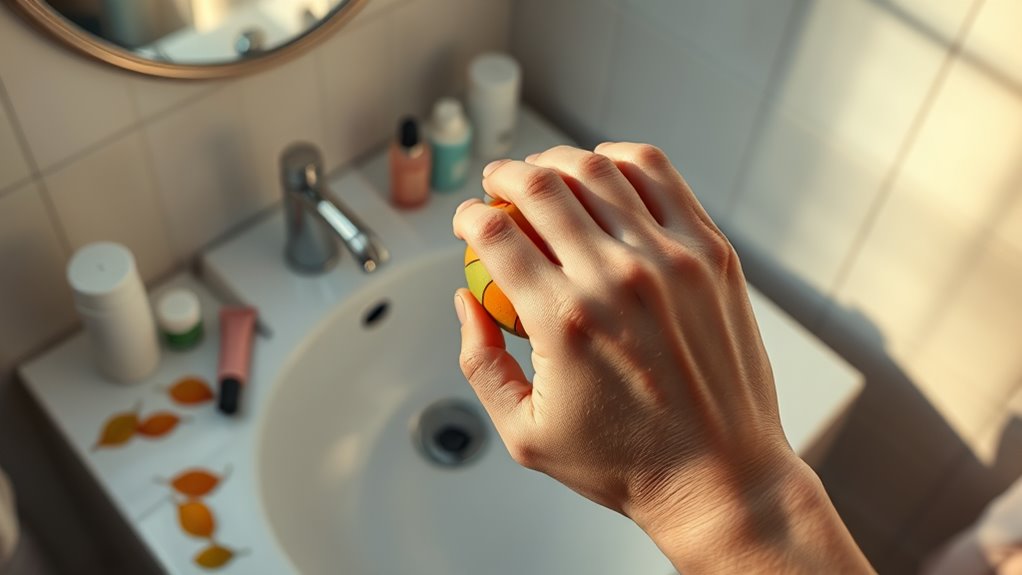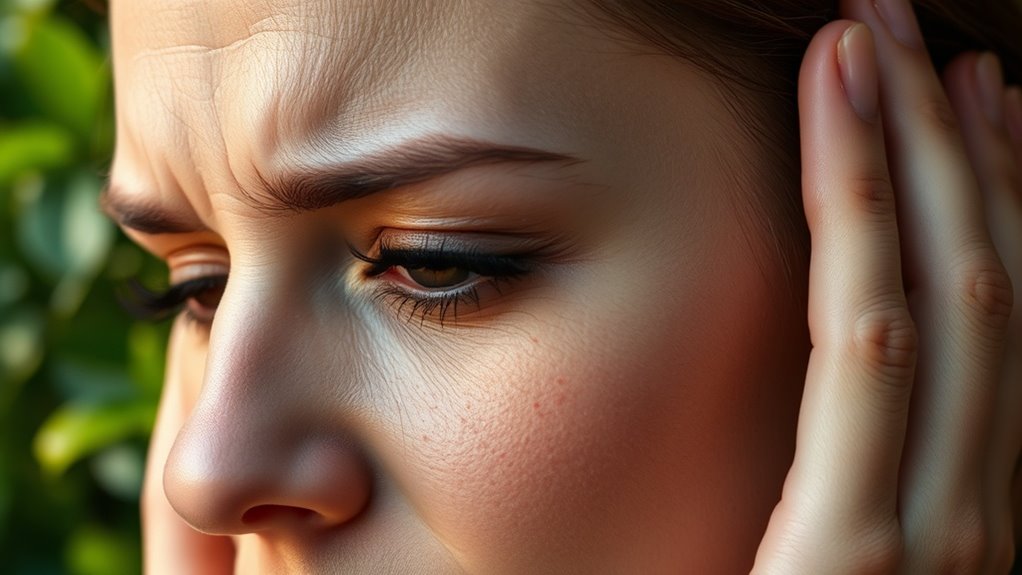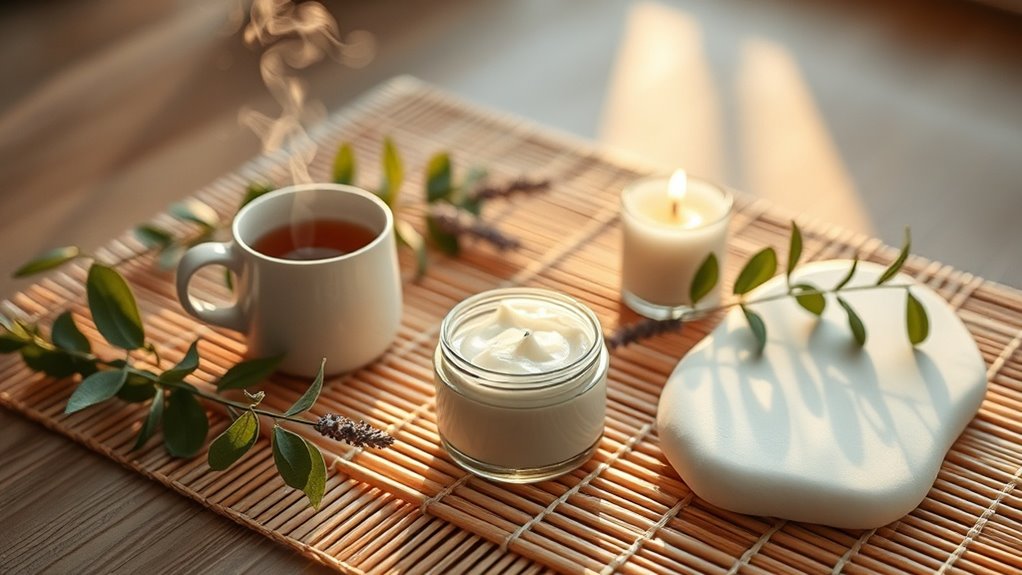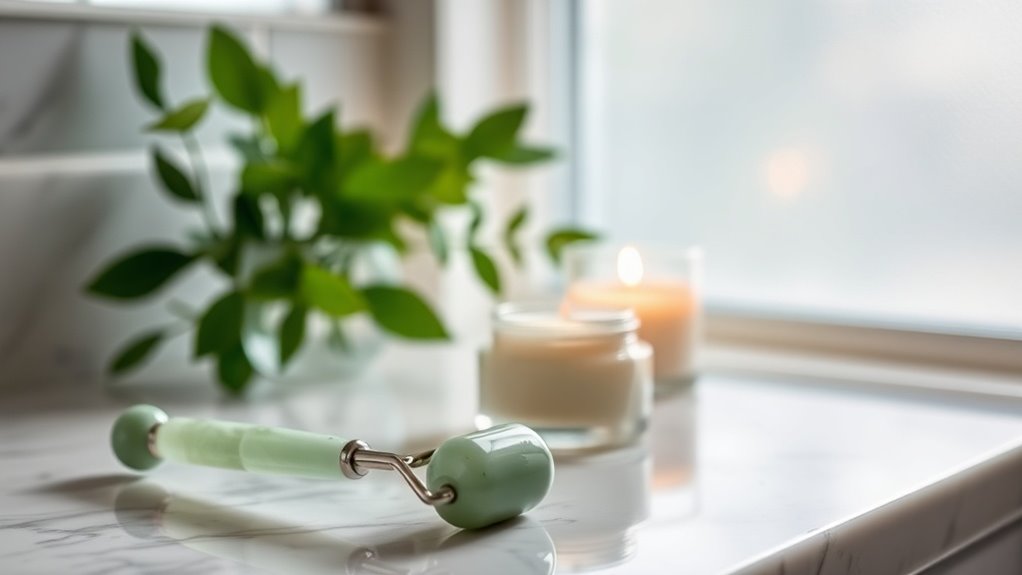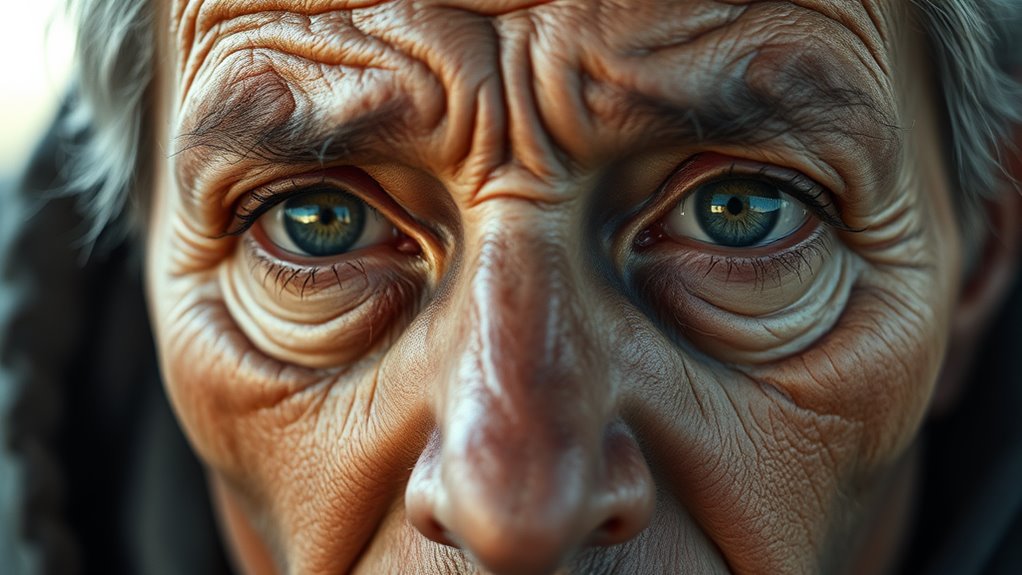This One Stress Habit Is Ruining Your Skin
You may not realize that one common stress habit is silently damaging your skin. Insufficient sleep raises cortisol levels, which can lead to increased oil production and worsen acne or eczema. This disruption also impairs your skin’s natural repair processes, making fine lines and dullness more pronounced. Understanding the deeper implications of your sleep patterns could be key to restoring your skin’s health and vitality. What other effects does chronic stress have on your skin?
The Physiological Effects of Chronic Stress on Skin
When you experience chronic stress, your body reacts in ways that can significantly impact your skin’s health. Elevated cortisol levels from prolonged stress stimulate oil production, leading to clogged pores and breakouts. Furthermore, your immune response weakens, making skin more susceptible to infections and exacerbating inflammation, which can worsen conditions like eczema or psoriasis. Stress skin damage also manifests through reduced blood flow, depriving skin cells of oxygen and essential nutrients, leading to a dull complexion. You might notice increased sensitivity, redness, or premature aging as collagen production diminishes. Understanding these physiological effects is crucial for managing the impact of stress on your skin, as addressing the root cause(managing these reactions) can help you restore your skin’s vitality and resilience.
Common Skin Issues Associated With Stress
Stress can significantly contribute to a variety of common skin issues that many people experience. When you’re stressed, your body produces cortisol, which can lead to increased oil production, resulting in acne breakouts.
You might also notice a worsening of eczema or psoriasis due to stress-induced inflammation. Additionally, stress can cause your skin to become dehydrated and dull, as it disrupts moisture balance and skin barrier function.
Some individuals experience hives or rashes during stressful periods, which are often driven by immune system responses.
Moreover, stress can exacerbate underlying conditions like rosacea, leading to persistent redness and irritation. This is because the stress-induced inflammation can hinder your skin’s healing processes, making it more prone to various issues.
Understanding these connections can help you take proactive steps towards managing both your stress levels and skin health effectively.
How Stress Accelerates Aging of the Skin
Skin issues linked to stress aren’t just temporary; they can also accelerate the aging process. Increased cortisol levels from stress lead to the breakdown of collagen and elastin, essential for skin elasticity and firmness. Over time, this results in premature wrinkles and fine lines. Stress also causes inflammation, further damaging skin cells and impairing the healing process. Additionally, sleep deprivation can exacerbate these effects, making it crucial to prioritize rest alongside stress management.
Here’s how stress impacts different aspects of your skin:
| Effect | Mechanism | Consequence |
|---|---|---|
| Collagen Breakdown | Elevated cortisol | Decreased skin elasticity |
| Increased Inflammation | Immune response to stress | Redness and irritation |
| Impaired Healing | Slower cell turnover | Dull, uneven skin tone |
Understanding these effects can empower you to take steps toward healthier skin.
Practical Tips to Manage Stress for Healthier Skin
While daily life often presents unavoidable challenges, adopting effective stress management techniques can significantly enhance your skin’s health.
Start by incorporating mindfulness practices like meditation or deep breathing exercises into your routine; studies show they help lower cortisol levels, improving skin resilience.
Regular physical activity is crucial as well; it boosts endorphins and circulation, promoting a healthy glow.
Prioritize quality sleep, aiming for at least 7-9 hours nightly; inadequate sleep disrupts hormone balance, adversely affecting your skin’s appearance.
Finally, maintain a balanced diet rich in antioxidants and hydration to support your skin from the inside out.
Additionally, ensuring you get sufficient rest is vital as it not only enhances radiant skin but also optimizes your overall well-being.
These strategies aren’t just good for your mind but are essential for achieving healthier, more vibrant skin.
Lifestyle Changes for Stress Reduction and Skin Improvement
Implementing lifestyle changes can significantly alleviate stress and improve skin health. Reducing stress not only benefits your mental well-being but also enhances your skin’s resilience against signs of aging and inflammation. Incorporating soothing ingredients into your skincare routine can further support a stress-free and healthy complexion.
| Lifestyle Change | Skin Benefits |
|---|---|
| Regular Exercise | Boosts circulation, glowing skin |
| Balanced Diet | Provides essential nutrients, improves elasticity |
| Mindfulness & Meditation | Reduces cortisol, diminishes breakouts |
| Hydration | Maintains moisture balance, prevents dryness |
Incorporating these changes can lower your stress levels, leading to healthier skin. Aim for a consistent exercise regimen, nourish your body with whole foods, practice mindfulness, and stay hydrated. Commit to these lifestyle adaptations, and watch both your skin and stress levels transform for the better.
